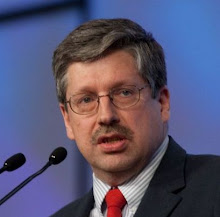Modernism's Christian Twins
Enlightenment thinking came to dominate the Church during 19th Century. One of its legacies was Higher Criticism. Bible scholars placed themselves above and outside of scripture. What did not conform to their rationalistic scientific assumptions was discarded. By the mid-Twentieth Century, scripture had largely been stripped of its authority and mystery.
Meanwhile, “defender of Scripture” fundamentalists arose in response. In retrospect, their reaction was a peculiar one. Rather than undercutting the assumptions of the Modernists, they embraced them! The fundamentalist project become one of showing how the Bible is entirely rational and has no vagaries. Scripture and faith became an air-tight, thoroughly rational, system. (Or so they thought.) All of this with a message that has as its cornerstone things like the trinity, “fully-human, fully God,” “born of a virgin,” and “lose your life to save it.” Just like the Modernists, the Fundamentalists unwittingly gutted the Word of mystery and reduced its authority to a system that stood or fell based on rational coherence.
Higher Criticism and Fundamentalism were twin children of the Modernist-Enlightenment era. Science and rational exploration began as projects to bring us closer to the mind of God. But science become that which would ultimately answer every human question and be the final arbitrator of disputes, even in matters of spirituality. I call this “omni-science.” Omni-science has collapsed and has all but taken liberal Christianity with it. Curiously, because Fundamentalist scholars so over identified with rationalistic models, the more conservative church now finds itself substantially discredited as well.
There has been a rediscovery of scripture as narrative over the last quarter century. With it has come a renewed appreciation for its mystery and authority. We are now returning to seeking the One behind the scripture. I believe that scripture was divinely inspired. Scripture as a mere collection of interesting human documents requires more faith than I can muster. But neither is scripture a systematic theology text or an instruction manual. It is divinely inspired and preserved testimony (testaments) about the living God, and its central purpose is to draw us into authentic relationship with the One about whom the documents give testimony.


2 Comments:
Interesting (and I think, spot on) comments Mike. I just spent some time last night at our Bible Journey group talking about how I'd rather us spend time "having the Bible live / study / imbrue us / surround us with its mystery and ambiguity" than trying to keep enthusiam and energy up for "study." Could have used this post as a perfect example of what I was trying to explain!
Grace,
RPS
Being an intuitive thinker, ever trying to find coherence, I find it difficult to just come to Scripture and let God be God. I practice Lectio Divina some, and this helps, but I desire more. I recently bought “Shaped by the Word: The Power of Scripture in Spiritual Formation,” by Robert Mulholland, Jr. He is a fellow intuitive thinker and I have really appreciated another book I read of his. I am hoping he can take me farther down the path.
Wonder if any one else reading this has thoughts on how to get beyond the purely analytical?
Post a Comment
<< Home